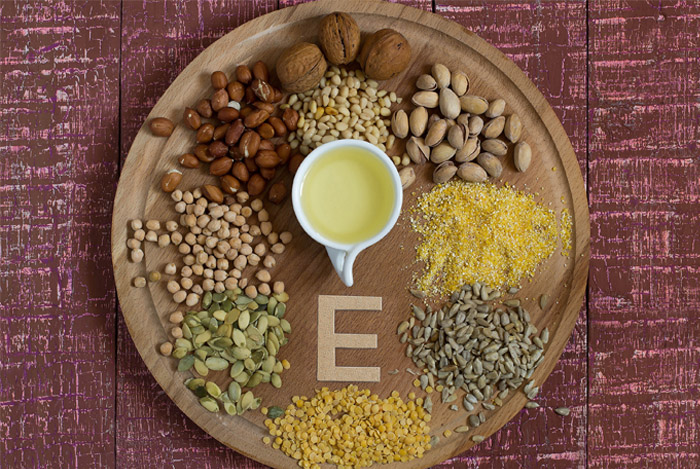If you ask me, walnuts (and nuts in general, really) seem like the kid at every school who ate lunch in the hallway instead of at a table in the cafeteria. No one really knew them very well, and no one made any real effort to include them.
Sad imagery aside, you’ve got to admit there’s a serious lack of nuts in the everyday diet. If you aren’t already geared and well-oriented to a well-balanced and healthy diet, you probably don’t even think about nuts.
Even the people I know who claim to love nuts don’t eat them regularly. And that’s pretty unfortunate, especially considering the huge range of health benefits they contain.
And walnuts are particularly special among nuts for their benefits. If you read on, you’ll soon see why walnuts are a food that absolutely should be included more regularly.
1. Powerful Antioxidants

If you want to find a food to boost your body’s ability to fight disease, walnuts are the perfect candidate. This is because of how positively chock-full of antioxidants they are. In fact, they’re the top of the list of nuts when it comes to antioxidant content.
“Walnuts rank above peanuts, almonds, pecans, pistachios and other nuts”, said Joe Vinson, PhD, in an article for Science Daily. “A handful of walnuts contains almost twice as much antioxidants as an equivalent amount of any other commonly consumed nut”.
Antioxidants have super awesome powers to protect cells against damage caused by free radicals – organic molecules responsible for aging, tissue damage, and some diseases.
Recent studies have shown walnuts to contribute significant amounts of melatonin, which creates a serious antioxidant effect. Melatonin is used as a sleep aid, helping to combat insomnia in adults and children. It’s also used for Alzheimer’s, tinnitus, depression, fibromyalgia, migraine headaches, irritable bowel syndrome, epilepsy, menopause, and even birth control.
Walnuts also contain some remarkable antioxidants called polyphenols that can potentially help prevent chemically-induced liver damage.
A lot of the key benefits of walnuts are based on these awesome antioxidants, so let’s look a little further into their effects.
2. Vitamin E
 Speaking of antioxidants, walnuts provide a significant amount of vitamin E – a 1 oz serve (14 halves) contains 0.20 mg. Vitamin E provides us with stronger immunity, healthy skin, and sharper eyes.
Speaking of antioxidants, walnuts provide a significant amount of vitamin E – a 1 oz serve (14 halves) contains 0.20 mg. Vitamin E provides us with stronger immunity, healthy skin, and sharper eyes.
Walnuts contain an unusual type of vitamin E, one that isn’t commonly found in most nuts. According to WHFoods.com, vitamin E is typically present as the alpha-tocopherol form in most foods containing it. In walnuts, vitamin E is also present in the form of gamma-tocopherol.
Gamma-tocopherol has been shown to be of crucial importance to human health, especially cardiovascular health. It has even been shown to fight prostate cancer.
Regular vitamin E, alpha-tocopherol, taken in high doses has been demonstrated to deplete plasma and tissue gamma-tocopherol – while the gamma-tocopherol found in walnuts increases both. This means the antioxidant benefits of vitamin E could be longer-lasting and more potent.
3. Heart Health
 Of all the nuts, walnuts are right at the top when it comes to benefits for your heart. In fact, it seems like most of the research done to evaluate the health effects of walnuts have revolved around heart health.
Of all the nuts, walnuts are right at the top when it comes to benefits for your heart. In fact, it seems like most of the research done to evaluate the health effects of walnuts have revolved around heart health.
Some people might find this a bit odd if they’re just looking at the nutrition profile of walnuts, and nuts in general, on paper. After all, nuts contain the highest total fat content of all natural plant foods after vegetable oils.
But those fats are actually pretty great for you. Why? Because the composition of nuts contains so little saturated fats.
Most of the fat content in walnuts is made up of unsaturated, monounsaturated, and polyunsaturated fats, including the extremely heart-healthy omega-3 fatty acids.
Nuts are typically free of cholesterol, but the fat in them contains compounds called phytosterols. These interfere with the absorption of cholesterol in the intestines, which can help lower blood cholesterol.
In fact, nut studies since the 1990s have found fantastic results when it comes to regular consumption of walnuts and reduced cholesterol levels and risk of coronary heart disease.
Like most vegetables and plant products, walnuts have a very low sodium content with a significant amount of calcium, magnesium, and potassium, which together are associated with protection against hypertension (high blood pressure), insulin resistance, and overall cardiovascular risk.
4. Brain Health
 One thing everyone should be on board for is a healthier brain. After all, you aren’t you without it.
One thing everyone should be on board for is a healthier brain. After all, you aren’t you without it.
A new report in the Journal of Alzheimer’s Disease has shown that adding walnuts to your diet may help with boosting your memory. According to the same report, walnuts can also reduce your risk of getting Alzheimer’s, delay its onset, and slow its progression.
Dr. Abha Chauhan, PhD, who led the research at the Developmental Neuroscience Laboratory at the New York State Institute for Basic Research in Developmental Disabilities, found that the high antioxidant content of walnuts was one of the key factors in protecting the brain against these degenerative illnesses.
“Our study adds to the growing body of research that demonstrates the protective effects of walnuts on cognitive functioning”, said Dr. Chauhan.
Another study published in the British Journal of Nutrition found that eating half a cup of walnuts per day for eight weeks generated an improvement in inferential reasoning skills (learning from past experiences) by 11.2% in college students.
An animal study published in the Journal of Nutritional Biochemistry found that diets containing 6% walnuts significantly reduced age related brain deterioration. The greatest effects were noted in the areas of the brain responsible for memory retention and cognitive function.
It might be crazy, but I dare say you’d be nuts to not be eating walnuts on a regular basis.
5. Fights Cancer
 Thanks to their antioxidant and anti-inflammatory nutrients, when you read all the findings on the health benefits of walnuts, you’ll discover there’s been ample research done on their anti-cancer benefits.
Thanks to their antioxidant and anti-inflammatory nutrients, when you read all the findings on the health benefits of walnuts, you’ll discover there’s been ample research done on their anti-cancer benefits.
The American Institute for Cancer Research details many of the promising studies done on walnuts. Check out their findings, but keep in mind that they do preface their statements with the reminder that more research still needs to be done on humans to determine the complete range of effects walnuts have on our diet.
“In mice, several studies found that consuming walnuts resulted in decreased breast and colon tumor growth compared to the animals eating a standard diet. Limited studies in mice also show reduced growth of prostate cancer. One study indicated that consuming a walnut diet altered the expression of genes that regulate cell growth. Walnuts’ omega-3 fat, alpha-linolenic acid, seemed to account for some, but not all, of the protection seen”.
I’ve already mentioned the serious benefit the nutrients in walnuts have for fighting against chronic oxidative stress and chronic inflammation. They’re highly relevant here; these are the two risks that, when combined, pose the most serious threat for the development of different forms of cancer.
While walnuts’ link to fighting cancer has not yet been fully established, you should still consider having them around to reap whatever benefits you can from eating them.
6. High in Protein
 If you eat a single ounce of walnuts a day, you could be reducing your chances of dying from chronic medical conditions, thanks to their healthy supply of dietary fiber, vitamins, and good fats. But walnuts are also an excellent source of another very important nutrient: protein.
If you eat a single ounce of walnuts a day, you could be reducing your chances of dying from chronic medical conditions, thanks to their healthy supply of dietary fiber, vitamins, and good fats. But walnuts are also an excellent source of another very important nutrient: protein.
If you’re a vegan, vegetarian, or someone who simply wants to include higher levels of protein in your diet, walnuts may be the perfect solution.
A single serving of walnuts (around one quarter cup or 12 to 14 walnuts) contains 4 grams of protein, making them an effective, protein-heavy snack.
A 2012 study published in the Archives of Internal Medicine determined that if you obtain more of your daily protein requirements from sources derived from plants (like walnuts) and less from red meats, you could be helping your body significantly in the fight against cancer and heart disease.
How can you ensure this benefit?
Sprinkle walnuts on top of your salads, mix them into your trail mix, or add them as a topping on low carb pastas.
7. Weight Loss
 A lot of people tend to avoid nuts because of their high fat and calorie content, believing they’ll lead to weight gain. But in reality, those may be the key reasons why walnuts are so good for you.
A lot of people tend to avoid nuts because of their high fat and calorie content, believing they’ll lead to weight gain. But in reality, those may be the key reasons why walnuts are so good for you.
Walnuts make you feel full, and they are by no means empty calories. They’re super low in carbohydrates (under 4 grams per ounce), which makes them awesome for blood sugar. You can eat them as snacks and they won’t simply whet your appetite.
“[Nuts are] high in protein, and protein is satiating”, said Dr. Richard Mattes of Purdue University. “They’re high in fiber, and fiber is satiating. They’re rich in unsaturated fats, and there is some literature that suggests that has a satiety value”.
Because of the aforementioned richness in anti-inflammatory and antioxidant nutrients, walnuts are great when it comes to preventing weight gain and the chronic inflammation that has been recently associated as a major factor in causing obesity.
Some studies have shown that nut consumption did not directly lead to weight loss, but that a low calorie diet including nuts let to greater weight loss than a similarly low-calorie diet that did not include those nuts.
8. Omega-3 Fatty Acids
 As I mentioned earlier, walnuts have some pretty great fats in them, including the famous omega-3 alpha linolenic acid.
As I mentioned earlier, walnuts have some pretty great fats in them, including the famous omega-3 alpha linolenic acid.
Regular consumption of foods high in omega-3 fatty acids has been linked to a lot of important effects on physiological processes, such as:
- Reduction of “bad” LDL cholesterol and triglyceride levels in the blood, and lower blood pressure
- Reduction of inflammation throughout the body
- Reduction of gastrointestinal problems like the symptoms of irritable bowel syndrome
- Treatment for depression and age-related mental decline
We can’t get omega-3s from any natural processes within our bodies, so we have to get them from regular consumption of foods that contain omega-3s. And walnuts are an excellent source, providing 2.3 grams per ounce. That’s nearly 100% of the recommended daily value of omega-3s.
For a more detailed discussion of the benefits of omega-3s, check out this recent article I posted on the subject.
In Conclusion
 Now it seems obvious: more people should be eating walnuts on a regular basis. Heck, people should be eating some kind of nut, period.
Now it seems obvious: more people should be eating walnuts on a regular basis. Heck, people should be eating some kind of nut, period.
But they rarely do. In fact, a recent study has shown that only 5.5% of all adults aged 19 to 50 consume tree nuts of any kind. The benefits of nuts are tremendous, yet people tend to forget about or entirely avoid them.
It’s time for walnuts to get an image makeover. Next time you’re at the grocery store, pick some up and enjoy the health benefits.
What do you think about the benefits of walnuts? Do you incorporate them or other nuts into your diet already? Let’s talk about it in the comments section!
The post 8 Reasons to Eat More Walnuts appeared first on Nutrition Secrets.
http://www.nutritionsecrets.com/eat-more-walnuts/
No comments:
Post a Comment